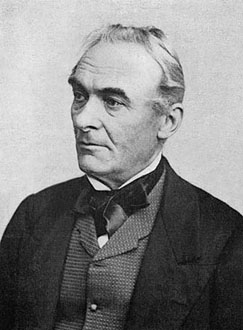Feb 20, 2020
The Man Behind the Man Behind Carmen
Prosper Mérimée (1803–1870) was a French dramatist, historian, archaeologist, and short story writer. He is perhaps best known for his novella Carmen, which became the basis of Bizet’s opera Carmen.
Mérimée was born in Paris. He studied law as well as Greek, Spanish, English, and Russian. He was among the first interpreters of Russian literature in France. Mérimée loved mysticism, history, the unusual, and the mystification, the historical fiction popularized by Sir Walter Scott and the cruelty and psychological drama of Aleksandr Pushkin. Many of his stories are mysteries set in foreign places, Spain and Russia being popular sources of inspiration.
In 1834, Mérimée was appointed to the post of inspector-general of historical monuments, and he was instrumental in the restoration and preservation of many historic sites in France, including the Cathedral of Notre Dame and the citadel Carcassonne. In this official capacity he published numerous reports, some of which, with other similar pieces, have been republished in his works.
Mérimée met and befriended the Countess of Montijo in Spain in 1830 who he credited as being his source for the Carmen story. He coached the Countess’ daughter, Eugenie, during her courtship with Napoleon III (though his correspondence indicates he was opposed to their marriage). When the daughter became Empress Eugénie of France in 1853 he was made a senator.
In 1841, Prosper Mérimée and his friend George Sand* made a major contribution to the history of medieval art by discovering the luminous tapestries of The Lady and the Unicorn during a stay at the Château de Boussac in the Limousin district of central France, which entered immediately into history thanks to the writings of Sand.
Prosper Mérimée died in Cannes, France.
*George Sand was the pseudonym used by Amantine Lucile Aurore Dupin, a French novelist who is recognized as one of the most notable authors of the Romantic era in Europe.

View Media Release






